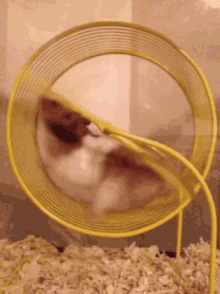
Today’s “Best of JacoBLOG” post was published almost one year ago – at the beginning of 2019.
In selecting it for our “replay” period here at the end of the year, it struck me as still highly relevant and hopefully, thought-provoking as when I wrote it.
I can also tell you it was one of our most-read posts of the year, but that doesn’t mean it was well-loved or brought smiles to a lot of faces. Whenever we find ourselves at a career crossroads, it’s never an easy time.
So, as we draw 2019 to a close, hopefully this post will provide a sort of selfie view of the radio world for some of you. Let me know what you think, and thanks again for being a reader of a blog about to celebrate its 15th anniversary – FJ
It’s that time of year. Many in radio (or out of radio trying to get back in) find themselves at a career crossroads.
But it often runs deeper than that. That’s because an industry that was quirky – but predictable – for decades is now surrounded by question marks. And it seems the longer one is “out”of the business, the tougher it is to get back “in.”
Many radio professionals also use an “exit” – whether instigated by their employer or not – as an opportunity to reassess both their career path as well as the trajectory of the radio industry.
And these days, I seem to be taking more and more calls and setting up coffees with broadcast professionals in search of their next opportunity in radio – or not. I’m not just being asked to think about “any programming gigs out there.” Instead, many of these conversations run bigger than that. They often encompass more career/future questions, often leading to my take on the state of the industry.
It used to be that a programmer, jock, or sales person on the beach would simply seek their next position doing pretty much the same thing – either elsewhere in town or in another market. Today, unemployment in radio often spurs a career fork-in-the-road where many important questions are asked:
Do I still want to stay in the game?
Are there broadcasters out there who will appreciate someone like me?
Do I have the chance to grow?
How much more of my life do I want to devote to this industry?

I have a unique perspective on the industry, interfacing with dozens of broadcast companies and hundreds of stations, both in commercial and public radio. And meeting thousands of radio careerists at the many conferences and conventions I attend during the course of a year provides an overview of where the business may be headed and what broadcasters are seeking.
That doesn’t make it any easier to provide counsel. And I truly empathize with those trying to figure it out, especially for veterans who have been plying their radio craft for years or even decades, and now find themselves wondering it there’s a place for them in today’s radio business.
So, when I ran across a story in Fast Company – “5 Signs You Need A New Career Path” by Anisa Purbasari Horton – it jumped off the screen. While it’s written from a generic career perspective, there are helpful questions for radio people struggling to figure out “What’s next?”
I chose four of her five signs that every “pro on the loose” should hold up against themselves as they re-evaluate their next career rung:
1. When your job is affecting other areas of your life negatively
Many of us have looked this one right in the eye. Like any career that feeds on passion, it’s easy to turn a radio job into a mission or even a crusade. I talk to many these days who are burned out, running on fumes, and simply out of bandwidth.
I’ve been there before as many of you have. Learning when to walk away from a job or radio gig before you hurt those around you – or yourself – is an important consideration, no matter the industry you’re in. It’s a tough question, but one that needs to be asked.
2. When your job (or the company you work for) no longer aligns with your values
You hear a lot of industry chatter about various companies – what they stand for and how they do business. If you have a particular bias, then don’t  go to work for them. And that means not interviewing with them if you truly believe their company philosophy is out of sync with yours. Too often, we see radio broadcasters take jobs with companies that have a certain reputation, only to end up unhappy and even surprised about the outcome.
go to work for them. And that means not interviewing with them if you truly believe their company philosophy is out of sync with yours. Too often, we see radio broadcasters take jobs with companies that have a certain reputation, only to end up unhappy and even surprised about the outcome.
Of course, it might also help to do some due diligence in the space because you might find your perception of certain companies isn’t especially accurate. It’s easy to get caught up in radio scuttlebutt and gossip that isn’t a true reflection of what a company or its management team is really all about.
3. Your industry is changing, and your dream job might not exist in five years
It doesn’t get any more real than this. Anyone’s who been in radio for a couple of cups of coffee knows that hiring priorities have changed – in some cases, radically. While there’s been an understandable focus on radio industry layoffs – especially since the Great Recession – there’s been little attention paid to new positions that have been created over the last decade or so.
Radio companies are becoming media companies. And that means digital staffers, including videographers, social media specialists, event marketers, and other jobs new to radio have become more plentiful during these years. We might expect positions connected to data, podcasting, content marketing, SEO, and lead generation to grow in popularity during the upcoming five years as well.
And that triggers a whole different question:
Do I have the skill set necessary to compete in a changing media landscape?
4. Your expectations don’t align with the reality
This is the tough one – when things simply don’t turn out the way you planned. With younger job entrants, career disappointments aren’t uncommon.
But with veteran radio professionals, there’s a strong chance that what was once a fun and fulfilling career has now changed – because the industry has changed.
Horton quotes author Suzan Bond:
“Few of us realize from the very start that a dream job is like a mirage in the career desert. Once we get to the spot we’d pinpointed, we discover it isn’t what we thought–it’s actually a little further up ahead, in the distance–so we keep searching.”
And oftentimes, that leads to frustration, because “old school” radio doesn’t really exist. In fact, nothing today is as we remember it. It’s human nature to glorify the past, and get down on the future.
Many in radio get caught up in the romance of the business that was, and continue hoping they’ll find that one situation, that one job or station that provides true fulfillment. Often, it never materializes.
And to Horton’s list, I’ll add two more – one that I learned early in my career. And the second one I’ve picked up along the way.
FJ1. When you really can’t define what it is you want to do
During the formative years when I was trying to break into radio, I got the chance to spend time with the GM at a station I was dying to work for. When he asked what type of position I was looking for, I proceeded to give him a list of many skills, in the hope that he’d hear something that fit a station need.
Of course, that plan backfired. And as he explained to me, it’s not up to a supervisor or boss to act as career counselor and direct you toward the right job. It is your responsibility to decide what it is you want to do, and go after it. It requires focus and commitment.
Often when talking to someone looking for their next gig, I hear that same trope: “Well, I’ve done lots of different things, and can fit in just about everywhere.” And I cringe because I realize that most bosses want to hear about your passion and your true talents.
A job or career focus has never been more important.
FJ2: When you feel like you’re on a treadmill and just don’t seem to be getting anywhere
It happens. You do your best at the task at hand, but better compensation and additional responsibilities seem elusive. Maybe it’s time to take matters into your own hand and become more proactive – volunteering for things that broaden your experience and your network.
It’s no guarantee that plan works because some radio bosses  will take advantage, but most respond well to employees looking to make a broader contribution to the enterprise.
will take advantage, but most respond well to employees looking to make a broader contribution to the enterprise.
That’s because most radio stations in 2019 are woefully understaffed, so becoming that “linchpin” as Seth Godin calls it, could open doors and create opportunities. And in the event you’re working for people who are unappreciative or don’t credit your efforts, chances are you’re learning new things you can take with you to that next job.
Navigating a successful career has never been more challenging or uncertain. Even people at the corporate level are questioning many of the “givens” revolving around what it takes to run a successful radio station, cluster, or company.
Reading the radio room – understanding how the needs of the business are changing, and aligning your skills and your mindset to be more congruent with media companies in the digital era – is one of the most important skills you can acquire.
In fact, that’s the “job” we all need to do.
- What To Do If Your Radio Station Goes Through A Midlife Crisis - April 25, 2025
- A 2020 Lesson?It Could All Be Gone In A Flash - April 24, 2025
- How AI Can Give Radio Personalities More…PERSONALITY - April 23, 2025





Fred,
I put radio in my rearview mirror almost 9 years ago. I’m not one to dwell on what it used to be, I learned when I rebuilt a 68 Mustang GT, the memory is always better than reality.
I dial around the LA stations, I don’t hear much that is interesting, Most of them sound like they are going through the motions.
On the other hand, I find myself sitting in the car at Best Buy or Trader Joes for 10 or 15 minutes listening to a podcast show on NPR
I heard one last week on overseas adoption, the content was incredible, when it finished they ran audio credits, the podcast had 9 contributors. Are any of today’s broadcast companies, willing to spend the money to transition to a modern Media Company? Will they send talent and production staff to India to get interviews? Would the staff be given the time to create an outstanding audio production?
The future is going to require more than repackaging clips from the morning show.
Spot on, Robert. We’re moving to an inflection point now.w The role of podcasts, the role of broadcast – all up for grabs, as consumers shift the way they consume audio. I know I sound like all the old timers, but radio has been through this before – and adapted to a new media environment. Whether the industry has the funds, the insight, and the wherewithal to figure it all out remains to be seen. Thanks for the comment.
I wonder how many commercial radio people have ever taken the time to listen to Radio Lab? It would be a good place to start learning about where things are headed.
Many commercial radio people (sadly) spend very little time with public radio. If you want to understand how content has changed, it’s a great place to start.